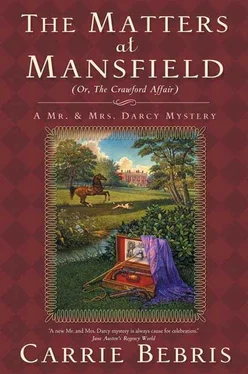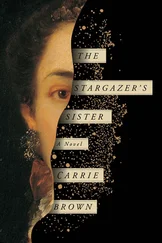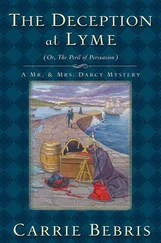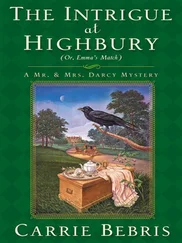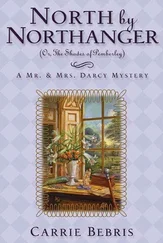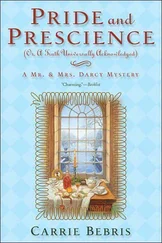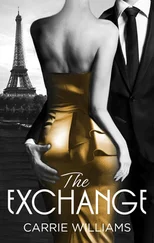The colonel glanced from one body to the other. “Two gentlemen of means, one of whom eloped with the other’s betrothed. I have seen the results of more than a few duels during my career, and this certainly has the appearance of one.”
“Neville Sennex complained last night that he had been denied satisfaction in the matter of Miss de Bourgh’s elopement,” Darcy said. “The Sennex family takes honor seriously, and you and I both knew Neville Sennex to be a man of incendiary temperament. I would not be surprised if he called out Mr. Crawford and made him defend his actions.”
“Nor would I,” Fitzwilliam said. “In fact, the Sennex family is so honor-driven that it might bring the viscount some small comfort to know his son died in a contest of honor.”
“Small indeed,” said Sir Thomas. “He has lost his only heir.”
Darcy glanced at Colonel Fitzwilliam. With Neville dead, a son born to his lordship and Anne would inherit the viscountcy. There would be no dissuading Lady Catherine from effecting the marriage now. And, now that he needed to produce another heir posthaste, the viscount himself would likely press as hard for a timely wedding — provided he even had the mental clarity to realize what was at stake.
Colonel Fitzwilliam did not meet Darcy’s gaze, but rather, swept the grove with his own, frowning. “A proper duel involves veritable entourage of participants — not only the primaries and seconds, but also the presiding officer, four officer seconds, and a surgeon — at a minimum.”
Darcy quickly took his meaning. “It does not appear that ten or more men were tramping about here this morning. Much of the grass remains untrodden, and the shot patches seem to be lying where they fell.” He recalled Elizabeth’s words about whether a gentleman confronting a rival lover always adhered to form. He also remembered Neville’s confrontation with Sir John Trauth in the card room at the Riveton ball. “Perhaps Neville Sennex felt it unnecessary to heed all the precepts of the Code Duello. He is quicker to talk about honor than to practice it.”
Colonel Fitzwilliam nodded. “A duel between Mr. Sennex and Mr. Crawford might well have been of a more… informal nature.”
“I wonder whether their unconventional duel began in an even more unorthodox manner,” said Darcy. “If Henry Crawford can be believed, Mr. Lautus claimed to have been hired by someone to teach him a lesson about honor. Perhaps that ‘someone’ was Mr. Sennex.”
“I deem it possible,” Colonel Fitzwilliam said. “Inasmuch as I believe Mr. Sennex likely to have issued a challenge to Mr. Crawford, I believe him equally likely to have delegated the first attempt to mete out punishment. Neville was probably the least honorable Sennex to have been born into that family in generations; very good at spouting off about honor but poor in his own demonstration of it. I warrant he would have had no qualms about letting someone else perform the dangerous work of defending his honor from foes.”
“And then when Mr. Lautus failed, he was forced to complete the business himself,” Darcy said.
“It would be just like him to arrange a less-than-proper means of settling their contest, with as few witnesses as possible.”
“There might not have been a crowd of observers here,” said Darcy, “but there was at least one other person — the individual who took their pistols afterward.”
“I dislike all these missing weapons,” Sir Thomas declared. “We still have not located the matching pistol to the Mortimer found with Mr. Lautus. If Neville Sennex did hire Mr. Lautus, I wonder, then, whether he knew anything regarding the whereabouts of the missing Mortimer pistol, or perhaps used it himself this morning.”
“That might prove easy enough to determine,” Darcy said. He walked to one of the patches near Mr. Sennex. It was a golden silk circle with the same bird pattern and three rifling marks surrounding a black center circle.
“You would seem to have your answer.” Darcy handed the patch to the magistrate. “This patch matches the two already in our possession. Somehow the missing pistol found its way into Mr. Sennex’s hands after the encounter between Mr. Crawford and Mr. Lautus.”
“Did Mr. Sennex retrieve it himself?” Sir Thomas asked.
“He had five days in which to do so before Mr. Lautus’s body was discovered — plenty of time to travel from Buckinghamshire and back,” Darcy said. “Though he would have had to know where to come. Was he ever a guest in your home before last night?”
“I am not certain. I had never met him before, but my son Tom frequently has friends to visit while I am traveling on business.”
Another patch lay nearby. Darcy picked it up. Same fabric, same rifling marks.
Bigger black bull’s-eye at the center.
Darcy asked Sir Thomas to hand back the patch he had just surrendered. He held it next to this new one. Not only the black powder circle, but the fabric itself, was of a larger diameter. “These two patches differ in size.”
Colonel Fitzwilliam took them from him while Darcy reached into his pocket for the one he had brought from the previous shootings. “The larger center circle suggests that a larger ball was used,” said the colonel.
Darcy unfolded the old patch and compared it to those just found. It matched the smaller of the two. “Unless the evidentiary pistol left your custody, Sir Thomas, the shot seated with the smaller of these new patches was fired from the missing Mortimer.”
“It has not left my custody.”
“Forgive me, but are you quite certain? Mr. Sennex was a guest in your home last night.”
Sir Thomas’s expression indicated that he did not appreciate the suggestion that he had failed to exercise proper stewardship over the pistol. “I am certain.”
Colonel Fitzwilliam walked toward Mr. Crawford and retrieved the patch that lay about five feet in front of the corpse. “It is of the same silk,” he said as he walked back, “in the larger size.” All four patches shared the three black rifling lines.
“Were this a proper duel,” Darcy said, “I would have expected Mr. Crawford to provide his own pistols, but it appears that all the shots were fired by weapons with similar rifling, and loaded by the same individual.”
“Were this a proper duel, the weapons would not bear rifling at all,” Colonel Fitzwilliam reminded them. “And it is consistent with what we know of Neville Sennex’s character to believe he might have owned a pair of pistols with hidden rifling.”
“Or two sets,” Darcy said. “It would seem we are now also seeking at least one larger pistol.”
“The size of the spent balls will be able to confirm that, assuming they can be found.” Colonel Fitzwilliam approached Mr. Sennex’s remains.
“Pray do not disturb him,” said Sir Thomas. “Mr. Stover will want to see the bodies as we found them. He is rather particular.”
Darcy would have liked very much to disturb Mr. Sennex just enough to close his eyelids and shield them all from his lifeless gaze. The expression of astonishment that yet dominated his countenance disturbed Darcy every time he accidentally glanced in his direction. Neville must not have expected Henry Crawford to prove so accurate a marksman.
Colonel Fitzwilliam, however, seemed entirely untroubled by the open eyes. Darcy imagined his cousin had seen the glassy stare of death often enough on the battlefield to have become oblivious to its unsettling effects.
Mr. Sennex had landed on his side, and Colonel Fitzwilliam circled round him. “I do not see a wound that would indicate the ball passed clear through him. We may be fortunate enough to find it lodged inside, as with Mr. Lautus. Mr. Crawford sprawls at a more difficult angle to judge, but we can be hopeful that he, too, exhibits no exit wound.”
Читать дальше
